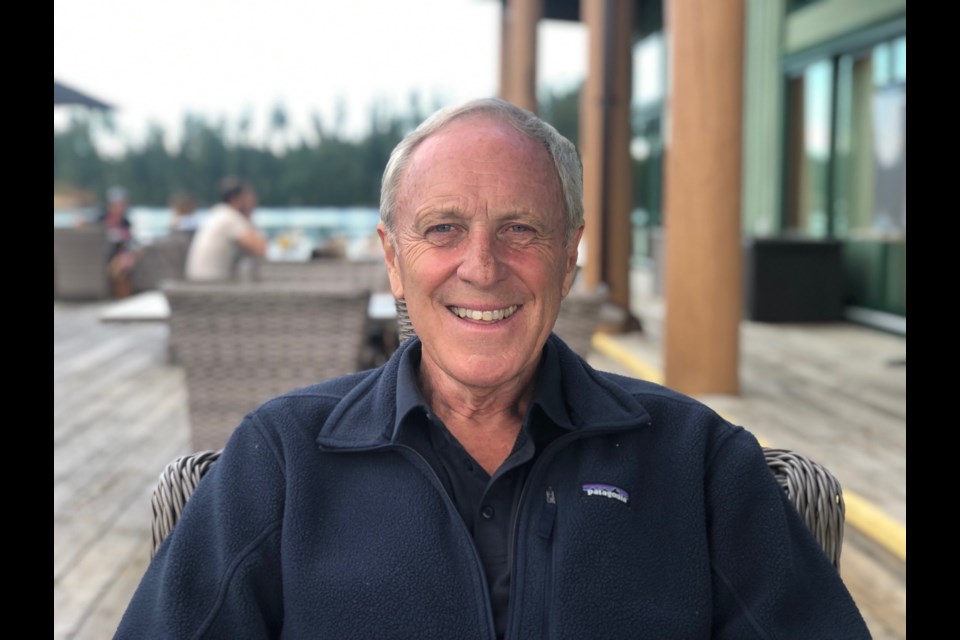Local author and now retired professor with University of Calgary, applied anthropologist Michael Robinson reflects on his important and rewarding work spent in remote communities in his new memoir: You have been Referred: My Life in Applied Anthropology.
He was awarded the Order of Canada in 2004 for his partnership building between First Nations communities and industry, in order for natural resources to be developed in an environmentally responsible way.
“I worked at the University of Calgary and was the executive director of the Arctic Institute of North America, and chair of the Canadian Polar Commission,” said Robinson.
He has worked specifically in northern communities, such as Haida Gwaii, Cree, and Dene First Nations, along with the Sami reindeer herders in Russia. Resource extraction had (and still does) come into conflict with communities still connected and using the land for food and survival.
Robinson said things weren’t perfect, and didn’t always go in a way that worked out for conflicted parties. He wanted to change how anthropologists typically worked within First Nations communities. He introduced to Canada the concept of participatory action research (PAR).
“Experts would go into a community and ask to research them, tell them what the research was, and then go away and write papers about it,” said Robinson. “My approach with PAR is that communities come to you, and say, ‘we want to do our own research, but we need you to train us how to do it.’
“It’s participatory; maybe [First Nations] want the government to change, or they want the Catholic Church to go away, or they want communism to end and perestroika and glasnost [Russian terms meaning to reform their political system and be more open during the Mikhail Gorbachev era] to lift them up.”
Robinson said he built strong, long-lasting friendships doing PAR.
“You live in the community and train the locals, and if it works out, then people say ‘well thank you,’ for not being so pushy,” he added. “Applied anthropology is to take the techniques of participatory observation and cultural understanding, and apply it in a way that’s not just to create peer-reviewed papers.”
In the 1990s, he worked in the northern Alberta community of Fort Mackay, where oil sands projects were starting up.
“The folks in the energy industry thought the Indigenous people, who were Iraquois, Cree and Meti, were no longer doing any life in the bush,” said Robinson. “The community wanted to show [to the oil companies] how important preserving the natural environment is.
“We designed a project where the community could interview all the people who hunted, fished and gathered in the bush; then we made a series of maps that documented the places people trapped up to eleven different species of fur-bearing animals. Another map showed where they foraged for edible berries, and another map showed all the trail systems, leading to those places where people hunted, fished and gathered.”
He said eleven maps were created in total.
“It was mind-blowing because it showed that the people of Fort MacKay utilize every inch of their treaty land around the community,” said Robinson.
When he showed the oil company the map, Robinson said “I could see necks snap back [in shock] around the board table.”
However, even though there were trapper compensation policies, he said people were losing income because they couldn’t trap any longer because of the oil patch.
“One day I was taken down the river by a Métis elder,” said Robinson. “[The elder] said, ‘when I was a boy and we came down the river, there would be lots of flies, mosquitos and spiders on the water; what do you see today? Nothing, there is no trout here anymore.’”
Robinson said there are all sorts of reports in the last decade documenting oil leaking, and all sorts of pollution because of oil sands development, which the public is becoming aware of.
Robinson has also played a key role with the David Suzuki Foundation and Friends of the Earth Canada; both groups advocate for better environmental protection.
“One of the things we have really learned is that young people now are less inclined to want a job in oil and gas because they appreciate climate change in a very direct way,” said Robinson. “They are seeing the impact on their lives.”
He believes that there needs to be a better understanding by scientists to understand the importance and the value of Indigenous knowledge.
“Better decisions are made when you combine Indigenous knowledge about the land with scientific processes,” he added. “That’s called co-management.”




